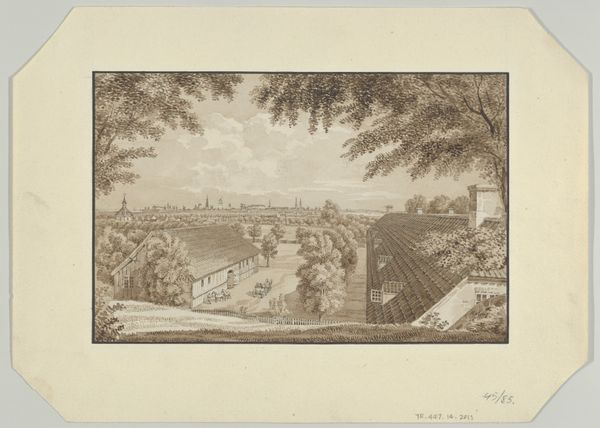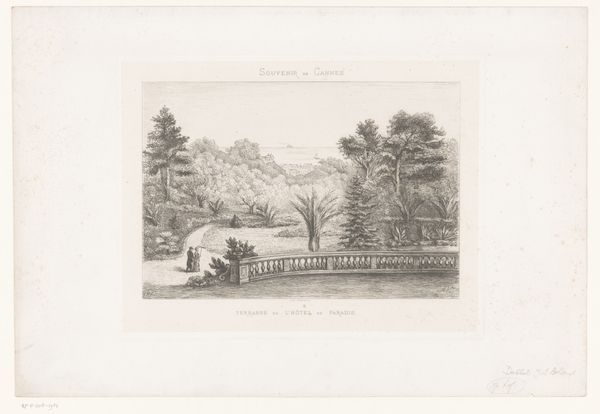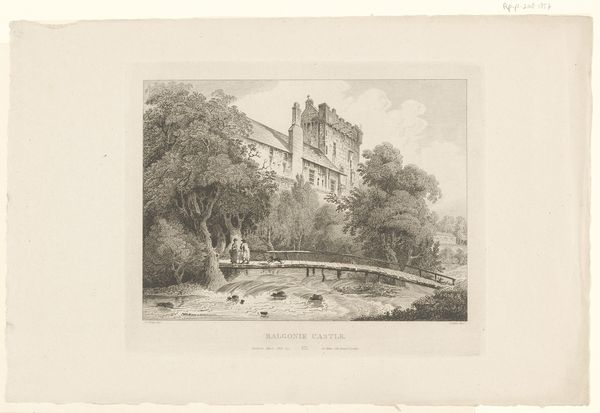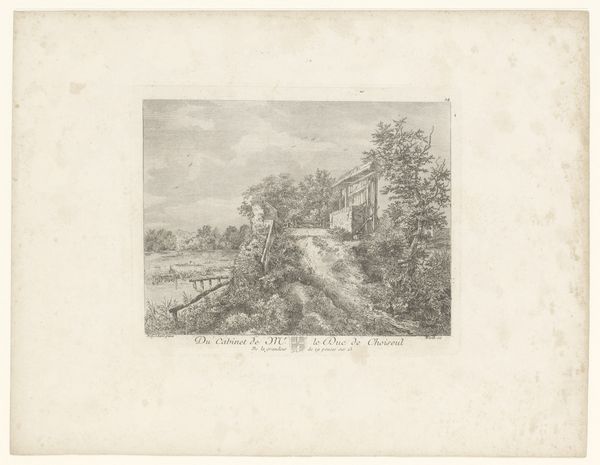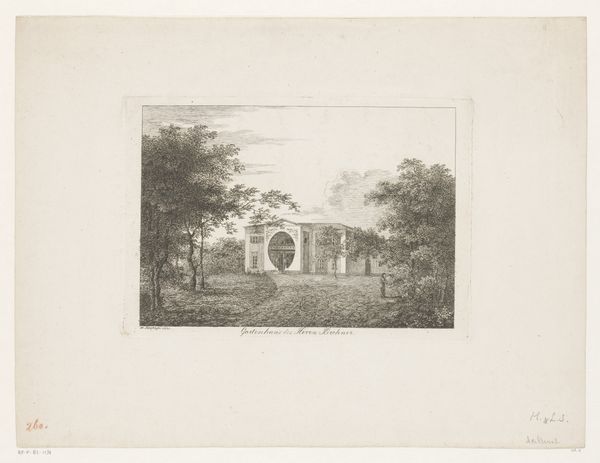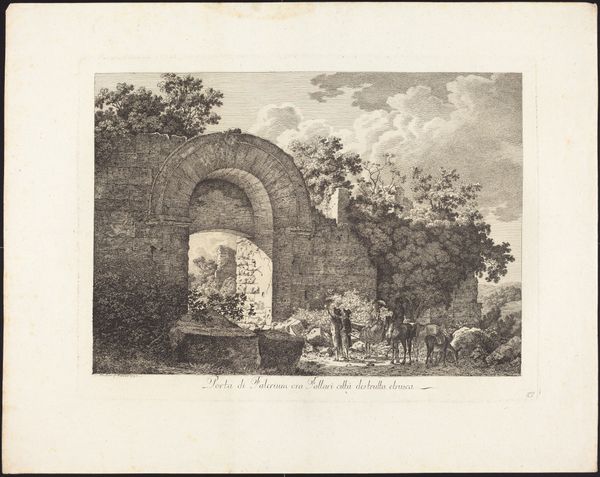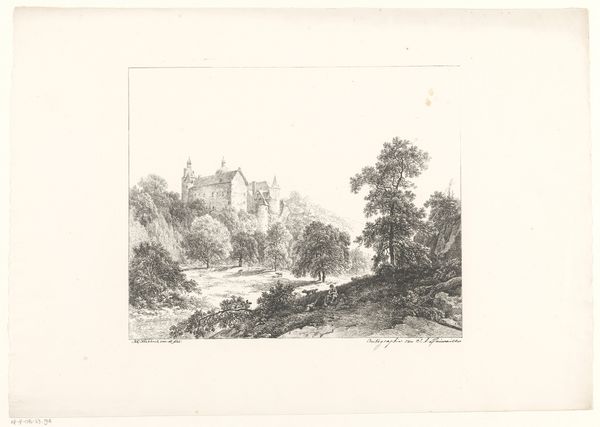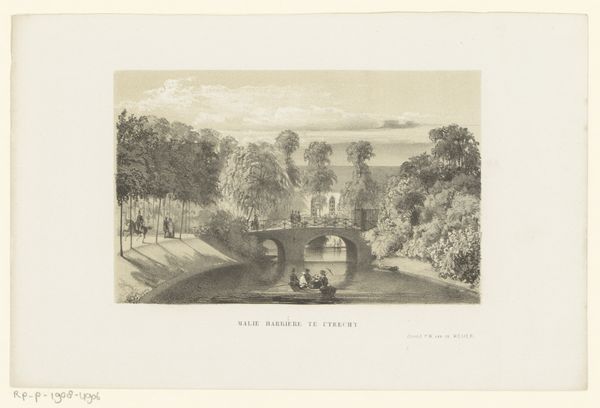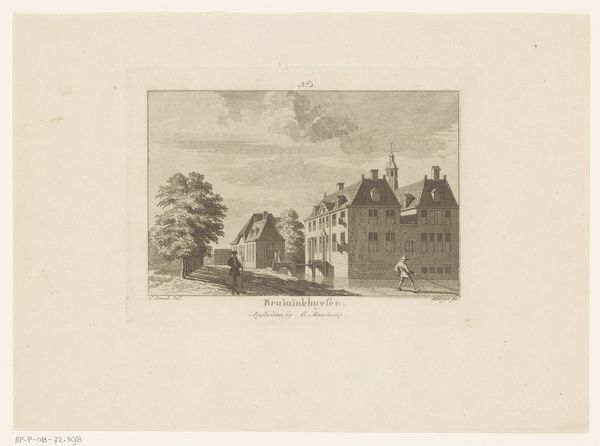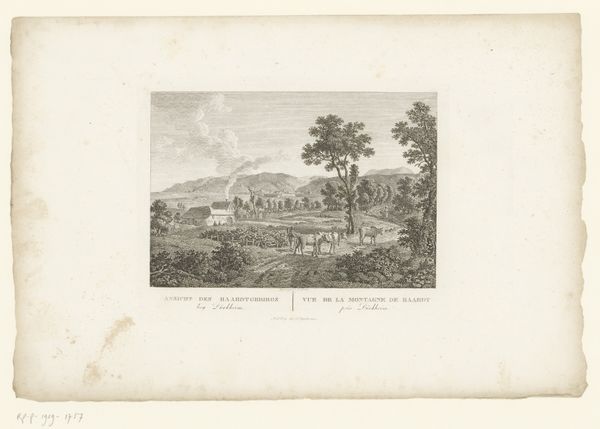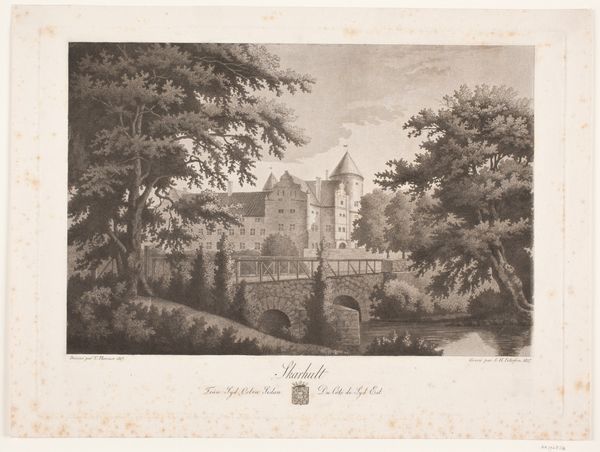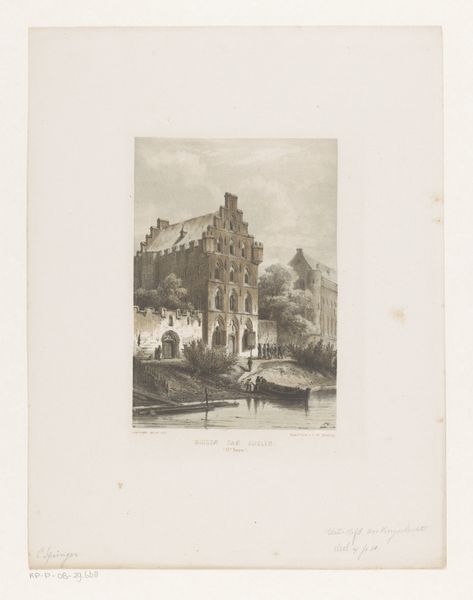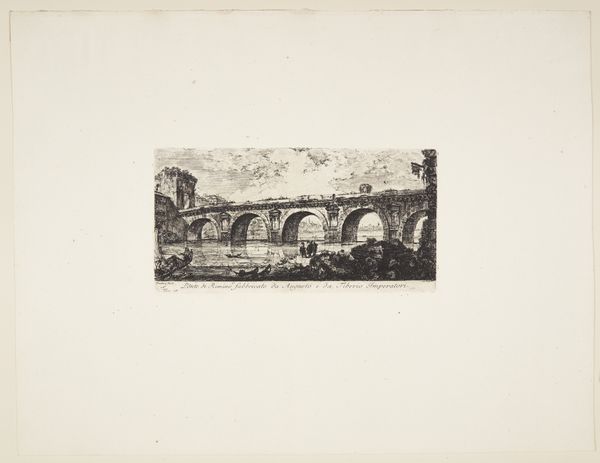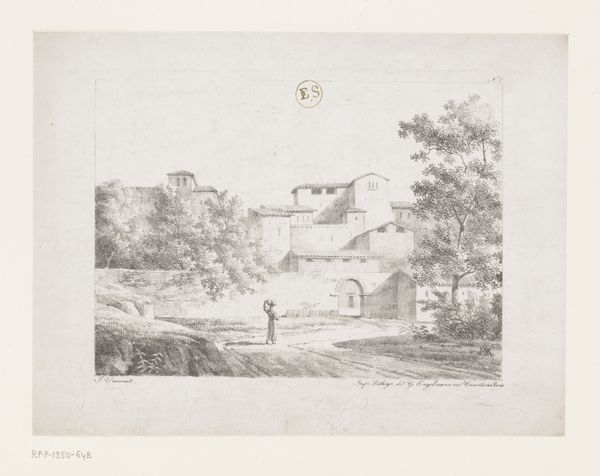
drawing, print, pencil, engraving
#
drawing
#
neoclacissism
# print
#
pencil sketch
#
landscape
#
form
#
pen-ink sketch
#
pencil
#
line
#
sketchbook drawing
#
cityscape
#
engraving
Dimensions: height 275 mm, width 365 mm
Copyright: Rijks Museum: Open Domain
Editor: This is "Zicht op een gebouw in de omgeving van Napels," or "View of a building in the Naples area," dating back to about 1825 by Amédée Bourgeois, rendered in pencil and engraving. It strikes me as incredibly precise, almost architectural in its detail. What catches your eye in this piece? Curator: Indeed. Immediately, I am drawn to the strategic deployment of line – note the incisive clarity defining the architectural elements, juxtaposed with the softer, almost atmospheric rendering of the foliage. The structural integrity is paramount. Do you observe how the linear perspective functions not merely representationally, but to create a certain dynamism? Editor: I see what you mean! The lines direct your eye through the composition, like following a path. Curator: Precisely. Furthermore, consider the contrast between the regularity of the arcaded structure and the more organic forms of the landscape. It sets up a dialectic, if you will, between order and nature – a key preoccupation within Neoclassical aesthetics. Editor: So, the formal elements themselves are contributing to the meaning of the work? It’s not just about what’s depicted, but *how* it’s depicted. Curator: Precisely. We might even delve into the semiotic implications of these visual choices – what do these repeated forms signify, or this stark contrast evoke within a system of visual language? Editor: It's amazing how much you can unpack just by looking closely at line and form! I had only thought about the scene itself. Curator: Indeed. Formal analysis allows us a deeper appreciation of artistic intention.
Comments
No comments
Be the first to comment and join the conversation on the ultimate creative platform.
